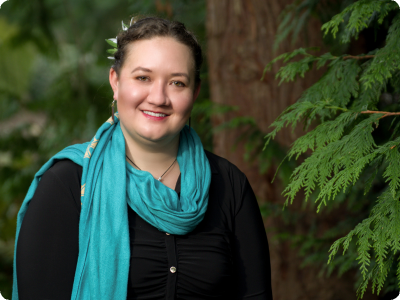Life Skills: This Really is a Real Job
Usually, I write about DEI-related topics. That’s what I’m passionate about, and feel I have things to share.
That’s not what is happening today.
Two weeks ago, my mom called me to let me know that my grandma was in the hospital, and it wasn’t looking good. She needed me to come home to say goodbye. The week before camp started. Could I really do that? My employer said yes, our policies have very clear family leave benefits, and my HR director said, “You need to go.”
But could I really do that to my program? No one else can do what I do to get ready for camp, right? I had to do some deep soul-searching to realize that, yes, sometimes things don’t always go according to plan, and there is never a good time to face the death of a loved one, but camp has given me all the tools I need to deal with this challenge.
There are two parts to this story—the part at work, where I realized all the prep I’d done and the parts I hadn’t, that let me turn over the last week of camp prep to my assistant and the part at home, where the skills I’ve learned from being a camp pro that helped me deal with the family challenges and grief processing.
The Part at Work
If you had to leave tomorrow, would your camp survive without you? We like to think that we are so important; I am the only one who can do what I do and knows what I know. But if that is really true, we aren’t setting our programs up for success, and for long-term sustainability.
So if you haven’t already done it, make your lists—all the things that need to be done that someone who isn’t you can plan your camp in your absence. How many things live only in your head, not in any documents? How many of your duties are actually written down —not just included in “other duties as assigned.” What do you actually do during the other nine months of the year when camp isn’t running—and during the summer, too?
Also, I had a very short amount of time to come to terms with the fact that things wouldn’t get done exactly the way I would have done them. I had to give up some of the control that I know I hold onto, especially when I get stressed out in the last prep before summer. But I couldn’t maintain that level of control when I needed to step out of the office. I had to be okay with things getting done in the way that someone else was going to do it. It is okay.
The Part at Home
The other, more surprising part of this story, and the part that inspired me to write this article, is the realization of how many skills we learn as camp pros that really do translate into other parts of life.
Honestly, I’ve never read any of ACA’s Project Real Job resources, and maybe if I had this wouldn’t be as much of a surprise. But I was home for two weeks with my family, and every day I was doing something that I learned to do at camp.
I made to-do lists and checklists. I organized a closet of craft supplies. I sorted and labeled some photos. And yes, I unclogged a toilet.
The most surprising task, however, that I learned at camp that came in handy with my family this week, was restorative justice conflict resolution.
I won’t share all the details to respect their privacy, but grief and other emotions that come with the death of a loved one don’t tend to bring out the best in most people and my family is no exception. There was an argument, hurt feelings, and misinterpreted advice, and someone stormed out without their phone or ID. I do need to work on my lost camper drill—it took longer than it should have to find our missing person, but when they did come back, multiple parties told me they didn’t know how to go about even starting to apologize or mend the hurt they had just caused.
I didn’t even have to think twice. I just realized that I had the skills to lead these adults through the discussion of what had happened and how to restore peace.
-
We talked about intent vs impact.
-
We used “I statements” to describe how we felt.
-
We listened to understand, not to react.
-
And we asked for what we needed to restore our community relationships.
We came to a resolution. We cried, we hugged, and we cried some more. But we came out stronger than we had been the day before.
My family got to see my skills in action. They, maybe for the first time, realized that my job has given me so many more skills than just “running a summer camp”. My skills saved my family.
And I see now, more than ever, that I have a real job, with real skills, that really help outside of camp.
Want to build your restorative justice skills?
We’ve got free resources in our Free Stuff section.

LEILANI NUSSMAN
Summer Camp and Extended Learning Director, NORTHWEST SCHOOL
Leilani can be reached at lnussman@gmail.com.
“I am a mixed-race Kanaka maoli (Hawai’i) and white summer camp director. I use she/her pronouns. I live on the ancestral lands of the Duwamish people, past and present. I speak for myself and from my own lived experience. I still have work to do.”
Leave a Comment